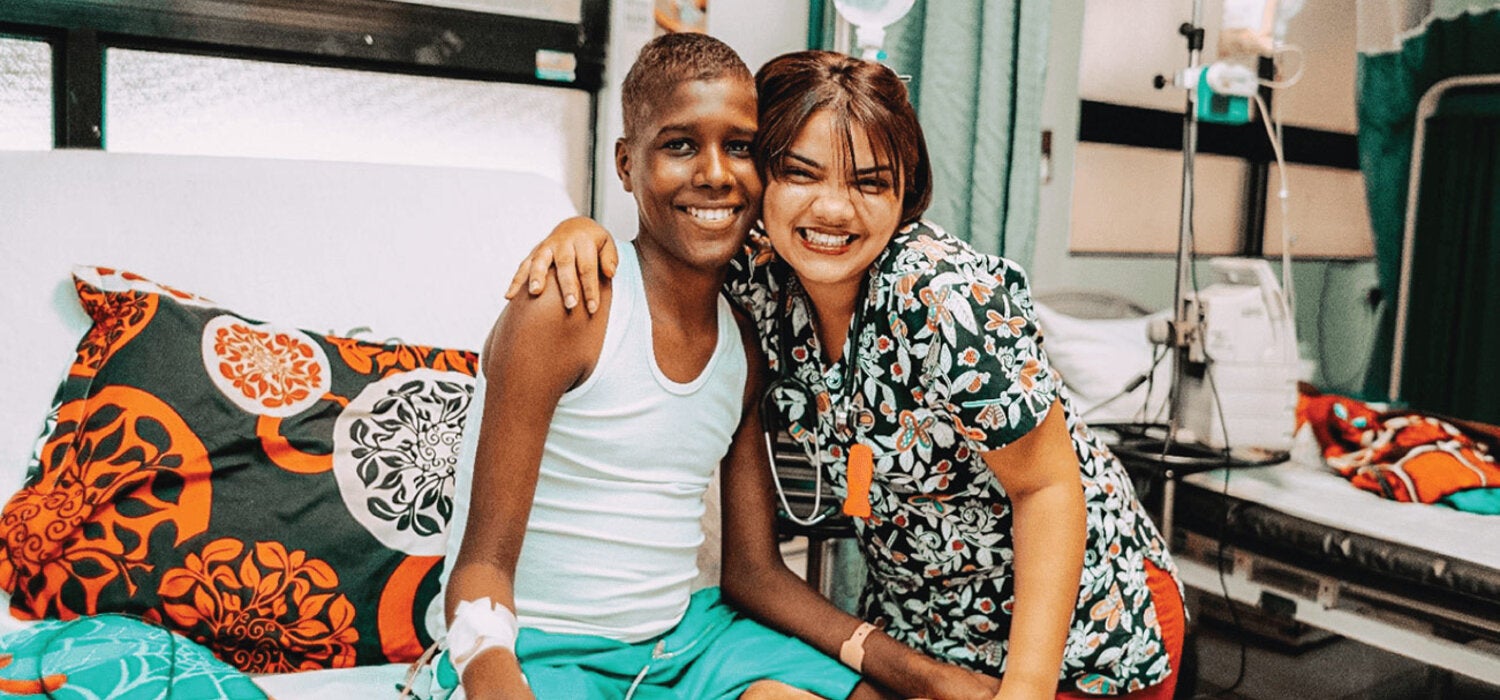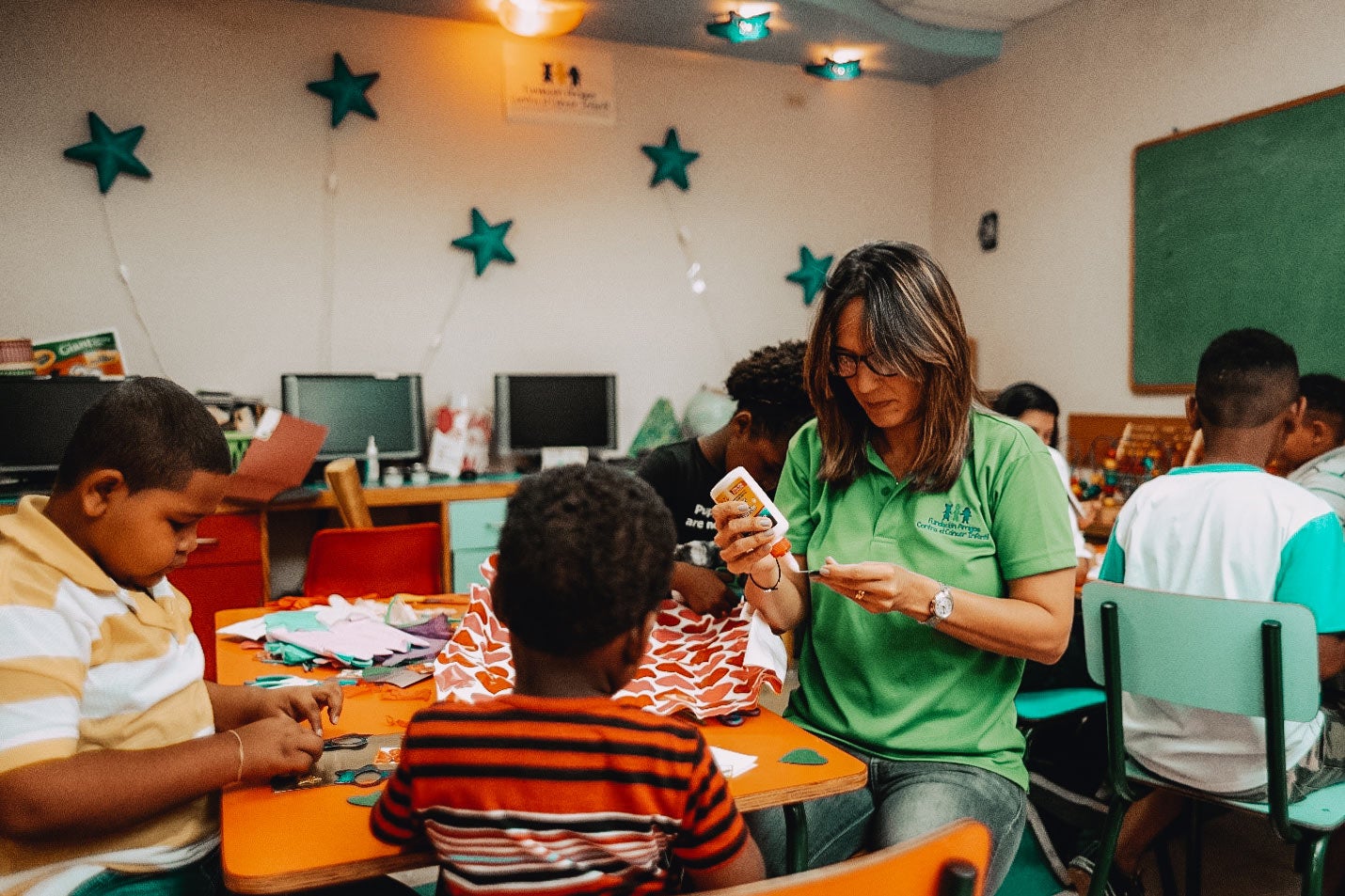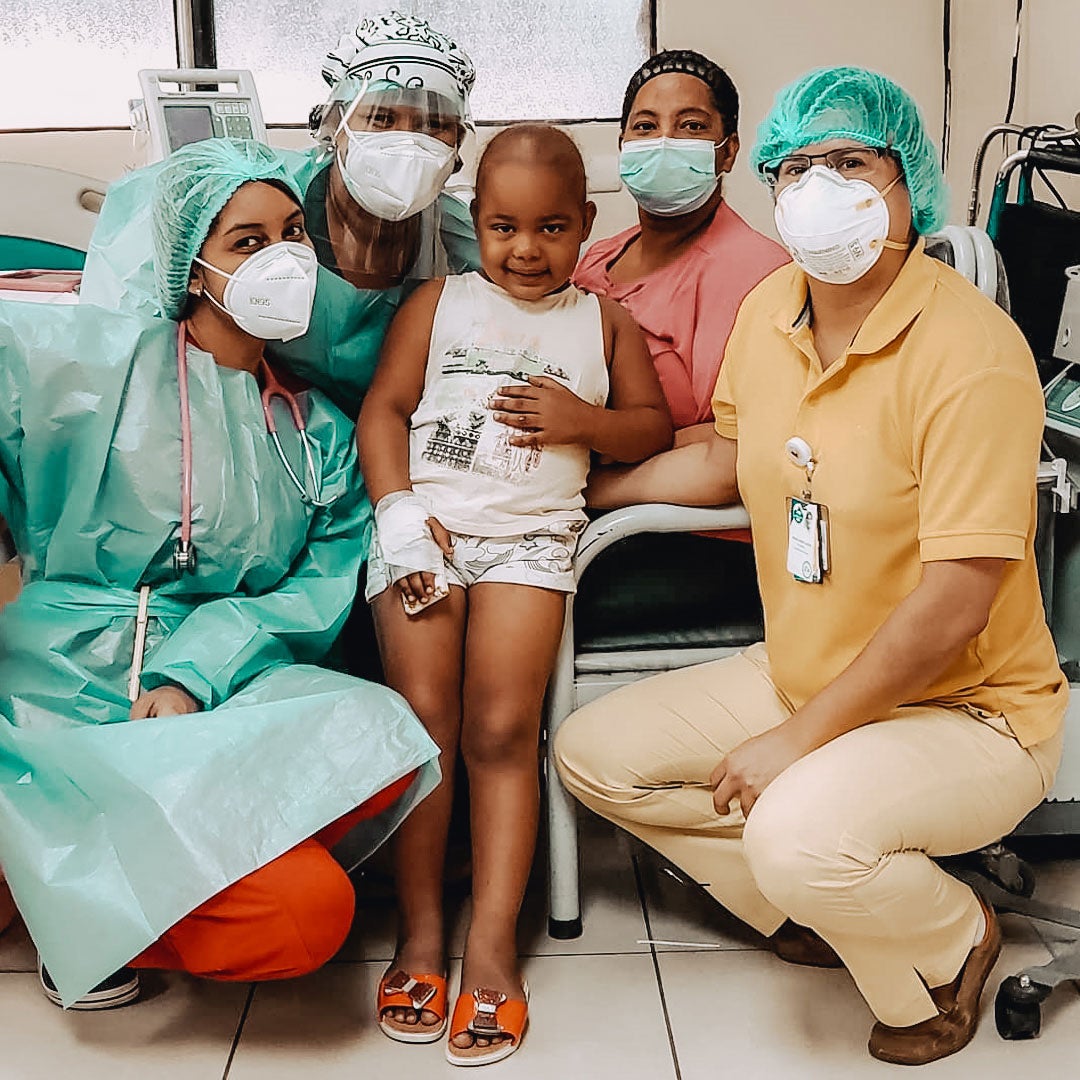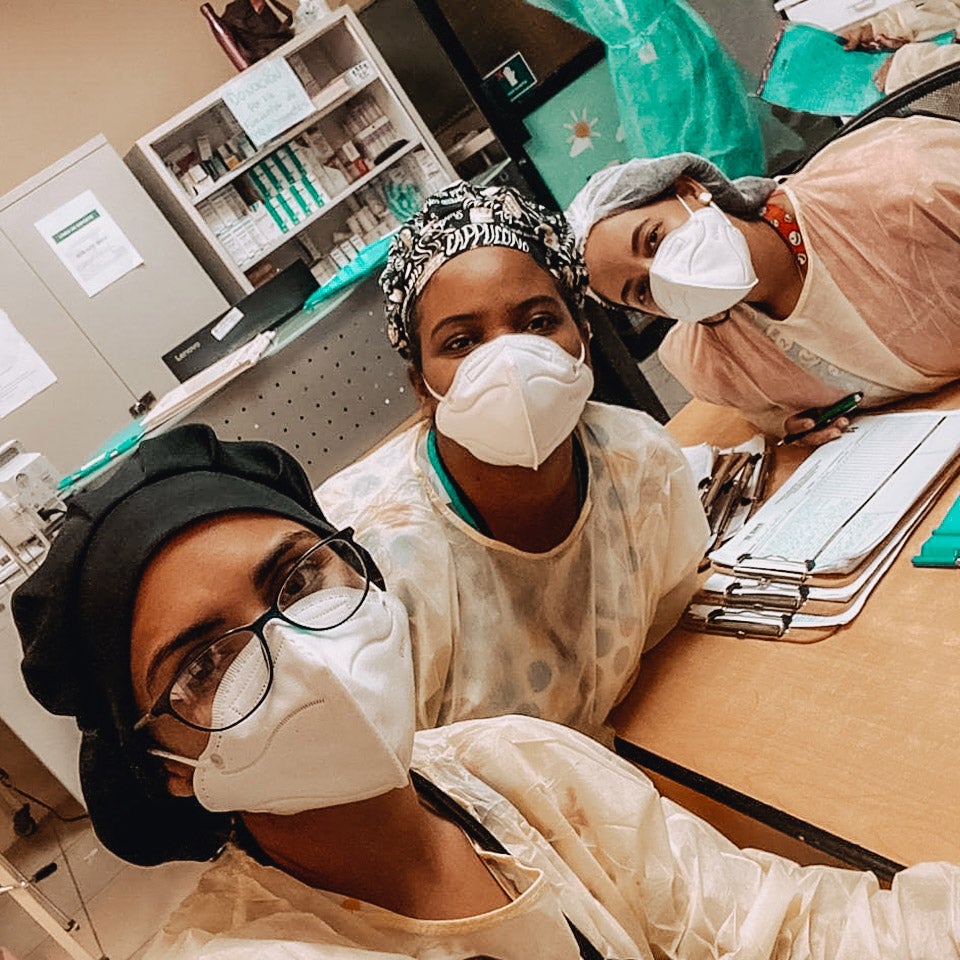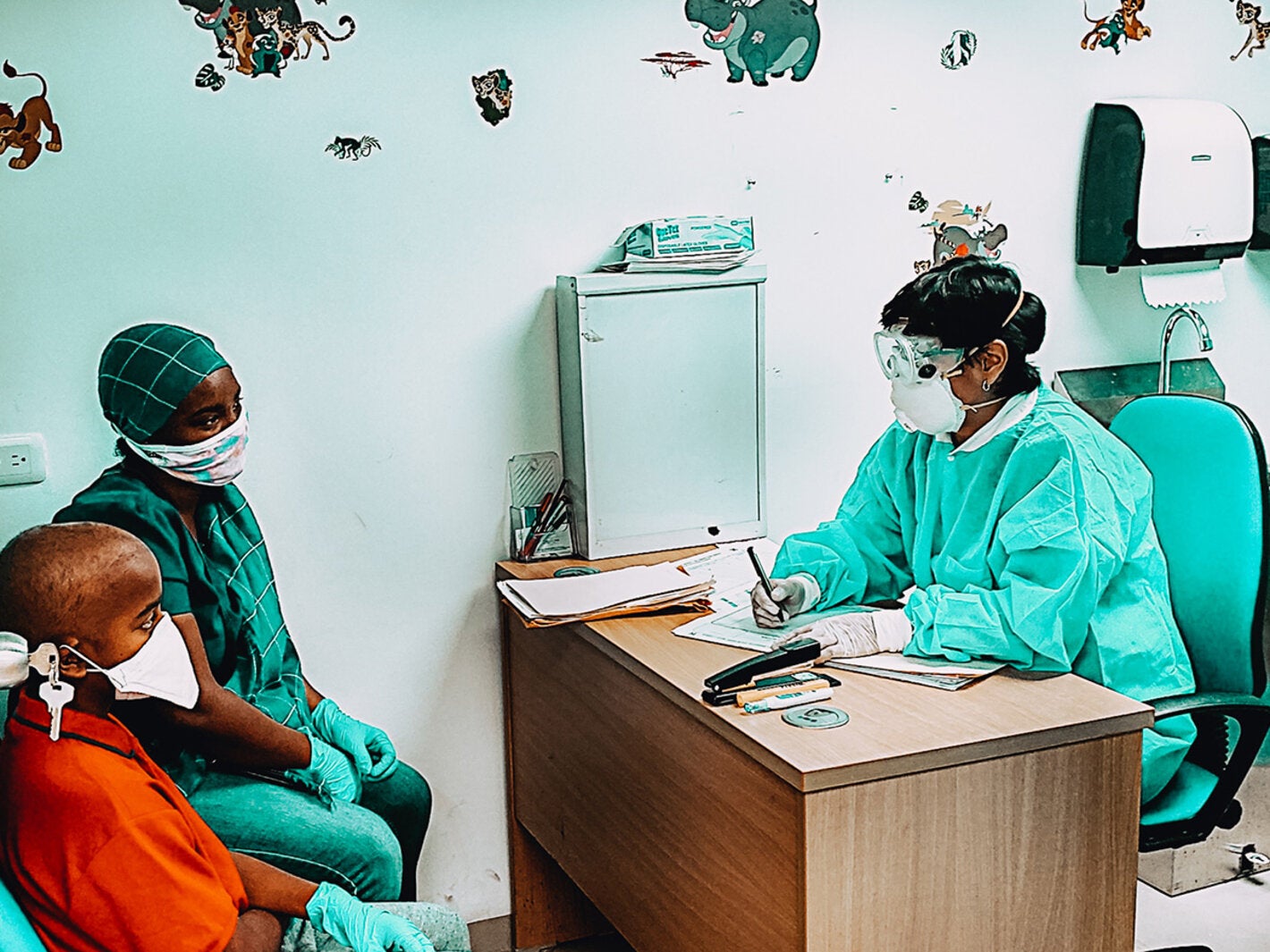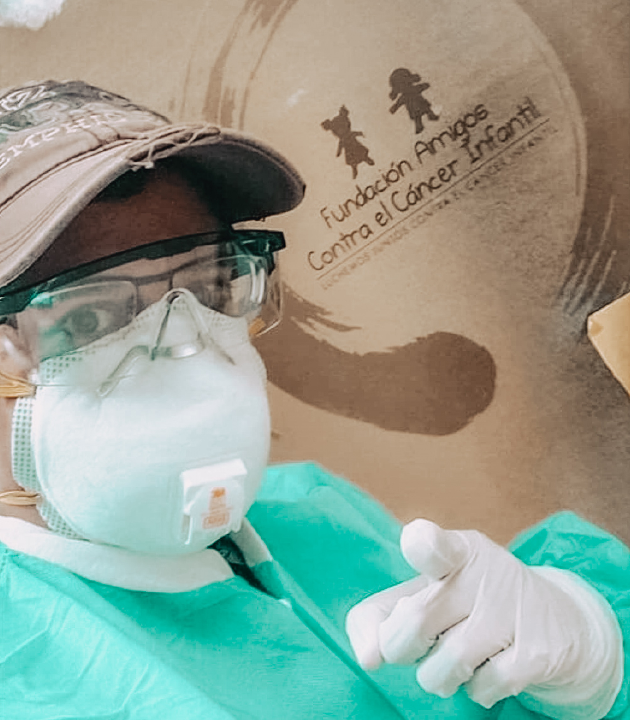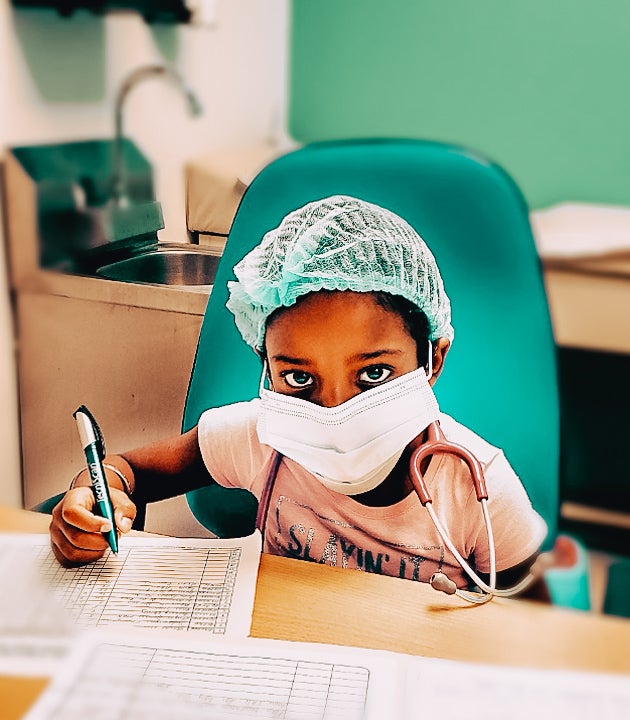In Santo Domingo, the Friends Against Childhood Cancer Foundation (Fundación de Amigos Contra el Cáncer Infantil - FACCI), provides treatment, diagnosis, funds to provide nurses, and has a team that attends 24/7 to pediatric patients.
Interviews with:
Ms. Alexandra Matos de Purcell.
President of Friends Against Childhood Cancer Foundation (FACCI for its abbreviation in Spanish). Childhood Cancer
International Subcommittee Representative of PAHO and Sub-regional Caribbean WHO.
Dra. Wendy Gómez García
Coordinator of the Children's Hospital Dr. Robert Reid Cabral. Clinical Advisor of the National Childhood Cancer Plan (
PENCI-RD, for its abbreviation in Spanish)
Santo Domingo, 9 December 2020 (PAHO/WHO)—Cancer is the leading cause of death among children, with nearly 400,000 new cases diagnosed each year in children ages 0-19 globally. Children with cancer in low- and middle-income countries, where 90% of the world's children live, are four times more likely to die from the disease than children in high-income countries.
FACCI was founded in 2003 in Santo Domingo, Dominican Republic, by a group of volunteers. They count with public and private funding. They define their mission as follows: “to help meet the urgent needs for diagnoses, cancer drugs, and support in general for children and their families, under the motto "cancer cannot wait."
The Foundation provides treatment, diagnosis, funds to provide nurses, and they have a team that attends 24/7 to pediatric patients. They provide financial assistance to boys and girls and their families, such as financing medicines and food, lodging in a center near the hospital, search for blood donors to guarantee blood on time to patients, offer transportation to their appointments and back to their homes, teach them to read and write and provide emotional support and entertaining activities to boys and girls during their treatment.
How has the COVID-19 pandemic affected the services that the Foundation provides to children with cancer?
At the beginning of the pandemic, Alexandra Matos relates, they coordinated with the Onco-Hematology department of the Dr. Robert Reíd Cabral Children's Hospital, where children used to go, to give them continuity with their consultation and chemotherapy services. During the two months that they have been in quarantine, they have had 437 consultations and have applied chemotherapy to 274 children. The children's transport service to the hospital and back to their homes is maintained, but the accommodation service was suspended.
In addition, together with the hospital, they developed a protocol so that the treatment of boys and girls was not so intense; COVID-19 prevention measures were disseminated, and the cleaning of the facilities was supported. In these seven months, the specialist explained that thanks to the emergency plan, which began in March and has continued through October 2020, 197 children were admitted in a timely manner to the national referral center to receive their intense chemotherapy cycles and another 767 outpatients received chemotherapy in the area called Hospital of the Day, "Hospital del Día."
What are the main challenges you are currently facing?
Alexandra Matos points out that blood provision is one of the main challenges today because the number of donors has tended to decrease, for example, from 14 in one day to 8 the next day. To address this challenge, the Foundation installed a mobile unit to facilitate blood donation.
For now, it is essential to maintain the transport service and ensure access to medicines.
They would also like to advance in digitizing in the medical aspect and, later on, continue with a project to build a pediatric hospital, which was being organized before the pandemic and they had received support from various sponsors.
What was PAHO's support?
Since March, the Foundation has been working with PAHO and the Ministry of Health to prepare, validate, and present a national childhood cancer plan by the end of the year. In collaboration with PAHO, plans for cervical cancer and the HEARTS program have been included, along with the use of educational materials that are shared with the families of children with cancer.
How was the reception by the families?
"The mothers are writing; they appreciate the support. They are families that have really lost their sources of income because, for the most part, they are informal workers. Besides, mothers are left alone, and support is a very important part for them," says Alexandra Matos.
Palliative care has also been an important part: "providing support to those children who are entering their final phase, who are already in palliative care at home, sending them what they need so that they have dignity and support for themselves and their families."
What have been the greatest satisfactions for the team?
"Being able to take care of these patients, not failing any of them (despite the responsibilities and difficulties that the team members have at home), that is one of the greatest satisfactions it has given us," says Alexandra Matos.

